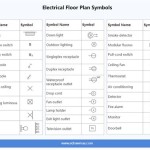Essential Aspects of Garden Centre House Plants
Adorning homes with indoor plants has become increasingly popular, transforming living spaces into vibrant oases. Garden centres offer a diverse selection of houseplants, each with unique characteristics and care requirements. Understanding these aspects is crucial for nurturing thriving indoor greenery.
1. Light Requirements: Different plant species have varying light needs. Some, like succulents and cacti, thrive in bright, direct sunlight, while others, such as ferns and peace lilies, prefer indirect or shaded light. Assess the light conditions in your home and select plants that will flourish in those environments.
2. Watering Frequency: Overwatering is a common pitfall in plant care. Determining the appropriate watering frequency depends on the plant's size, species, and pot size. Generally, cacti and succulents require infrequent watering, while ferns and tropical foliage plants may need more regular watering. Avoid overwatering by checking the soil moisture before watering and allowing it to dry out slightly between waterings.
3. Soil Composition: The soil in which a plant is potted plays a vital role in its health. Garden centres offer a variety of soil mixes tailored to specific plant types. For instance, cacti and succulents require a well-draining, sandy soil, while ferns prefer a moisture-retentive, organic soil. Ensure the soil is well-aerated and free of pests or diseases.
4. Fertilization: Fertilizing plants provides essential nutrients that enhance their growth and vitality. Most houseplants benefit from a balanced fertilizer applied monthly during the growing season. Over-fertilizing can damage roots, so follow the instructions on the fertilizer label carefully.
5. Repotting: As plants grow, they may outgrow their current pots. Repotting involves transferring the plant into a larger pot with fresh soil. This provides additional root space and prevents the plant from becoming rootbound, which can stunt its growth. Repot when roots begin to circle the edges of the pot or when the plant appears crowded.
6. Pest and Disease Control: Houseplants can be susceptible to pests and diseases, such as aphids, spider mites, and powdery mildew. Regular inspection and prompt treatment are essential to prevent infestations. Use organic methods such as neem oil or insecticidal soap, or consult a garden centre for effective solutions.
7. Seasonal Care: Seasonal changes can impact the care requirements of plants. During the winter months, reduce watering frequency and provide less light. When temperatures rise in the spring, gradually increase watering and light exposure. Monitoring plant cues and adjusting care accordingly ensures their well-being throughout the year.
Conclusion: Nurturing thriving indoor plants involves understanding their essential aspects, including light requirements, watering frequency, soil composition, fertilization, repotting, pest and disease control, and seasonal care. By considering these factors and providing appropriate care, you can transform your home into a vibrant haven filled with flourishing greenery.

Where Can You Buy Houseplants Our House Plants

Houseplants Garsons

Houseplants Tong Garden Centre Bradford

Houseplants Trowbridge Garden Centre

Houseplants Market How To Keep Garden Centre S Thriving Hortweek

Why House Plants Are Good For Your Health Burston Garden Centre

Indoor Plants Poplars

Houseplants

Houseplants Barton Grange Garden Centre

Houseplants Garsons








